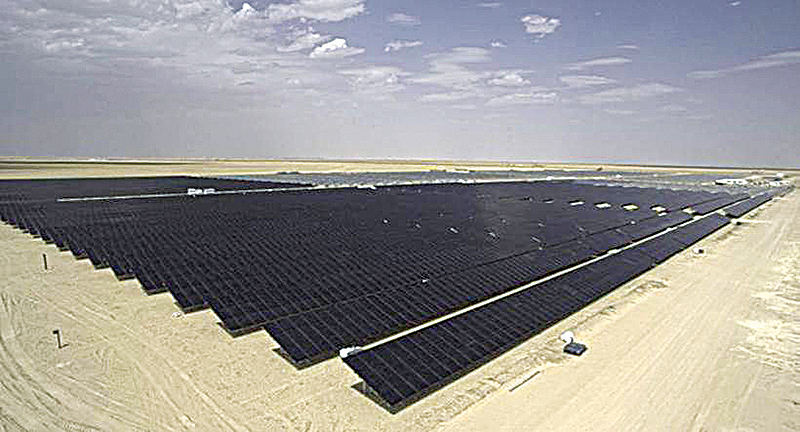Power, desalination plants eat up 10 percent of annual oil revenues

KUWAIT: The 2019-2020 development plan report submitted by the government to the parliament warned that fuel subsidies needed to operate power and desalination plants have grown to more than 10 percent of Kuwait's annual oil revenues. The report also stressed that such a situation calls for more reliance on renewable energy projects as one of the main targets of sustainable development as well as a major aim of the state leadership represented by His Highness the Amir Sheikh Sabah Al-Ahmad Al-Jaber Al-Sabah, who called for generating at least 15 percent of the energy needed in Kuwait through renewable and clean resources by 2030.
The report said that although Kuwait faces a major challenge, it can overcome it easily with using solar and wind power, in addition to biomass from solid waste. In addition, the report said that there are four renewable energy projects (three of them executed by government bodies) in the pipeline, and that some of them are already under construction while others are still being prepared. The report elaborated that the Kuwait Institute for Scientific Research (KISR) is currently working on the Al-Shaqaya renewable energy complex and a renewable energy-operated water desalination plant, while the Ministry of Electricity and Water is working on a project to install solar panels on Subbiya water reservoirs and Kuwait Petroleum Corporation is working on the Debdeba solar power plant. The estimated total cost of the four projects is KD 769.6 million, the sources added.
Price control
The Ministry of Social Affairs' assistant undersecretary for cooperation Abdul Aziz Shuaib announced launching an e-program for follow-up and control of vegetable prices at various cooperatives, adding that the program was developed in collaboration with the ministry's information technology department and the co-ops union. Speaking during a ceremony held at Rabiya Co-op Society to honor outstanding students on behalf of the minister, Shuaib stressed that the ministry fully trusts that all co-ops will use the program, adding that it will have a positive impact on vegetable quality and prices.
Shuaib said that the ministry's cooperation sector is getting prepared to automate its systems to have full control on various goods and prices, starting with receiving them at various outlets until selling them. He also noted that voting in co-op board elections will also be automated. In addition, Shuaib said meetings had been recently held with various co-op boards to mandate them to fill vacant leading positions. He also noted that he weekly meets with four co-ops to discuss Kuwaitizing various jobs in them and promised that 90 percent of these jobs would be Kuwaitized by Ramadan.
New undersecretaries
The Public Authority for Housing Welfare is getting prepared to bid five assistant undersecretaries (deputy directors) farewell soon because Minister of Public Works and Minister of State for Housing Affairs Jenan Bushehri is refusing to extend their services, said informed sources. The sources added the Cabinet will issue a decision next week terminating a decree appointing the authority's deputy director for distribution and documentation Fauzia Dashti. The sources said Bushehri is currently preparing a new younger team with engineering experience to replace the outgoing officials with the aim of developing the authority's performance and boost the process of executing developmental housing projects.
Higher studies
Well-informed sources at the Civil Service Commission (CSC) said that a new charter concerning higher studies and government bodies' needs of holders of such certificated is being studied. The sources added that CSC is keen on providing a suitable atmosphere for employees going abroad on scholarships and academic leaves and that it approves most of their applications according to the budget and in collaboration with the finance ministry.
By A Saleh
.jpg)
